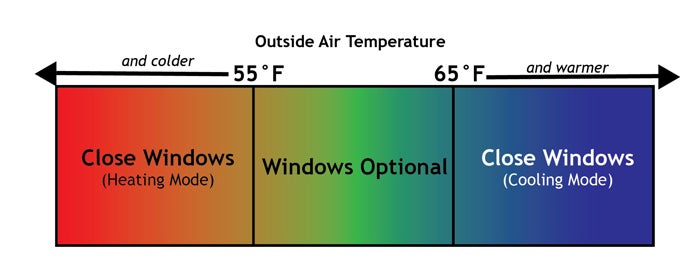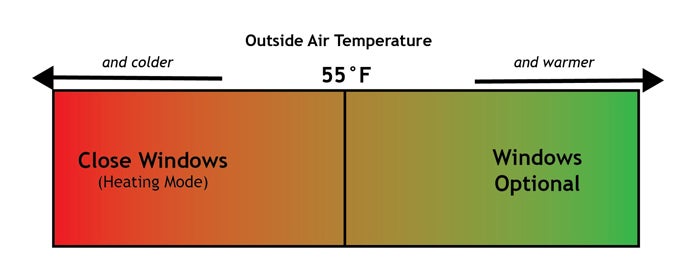Office of Energy and Sustainability
Occupant Resources for Energy Efficiency
The heating and cooling of buildings has historically been the college’s largest source of greenhouse gas emissions. The college has upgraded the heating infrastructure from using fossil fuels to an all electric ground source heat pump system to heat and cool buildings.
Keep yourself comfortable and energy smart with these resources, including videos and schematics of all residence halls.
Which system is in my residence hall?
Oberlin College and Conservatory residential buildings have two types of heating and cooling systems: fan coil units (FCU) and radiators. Depending on what type of system is in your residence hall will determine how you can best interact with it for maximized comfort and efficiency. Find your room schematic in the sections below.
Learn more about the heating and cooling system on campus with this short video made by Oberlin College students.
Learn how to best interact with these units to maximize comfort and system efficiency.
Energy Efficiency Tips
New technology through the SIP is only part of the solution. You can do your part to help the system run efficiently and conserve energy by learning how the heating and cooling works in the campus buildings you use.
Hear more tips in this short video made by Oberlin College students.
Windows in Buildings with Air Conditioning
In buildings with air conditioning, windows should only be opened when the temperature is between 55 degrees and 65 degrees.

Windows in Buildings without Air Conditioning
In buildings without air conditioning, windows should only be opened when the temperature is above 55 degrees.

Windows in any Building
Please ensure open windows are closed before leaving the space.
Your blinds can help keep a space cool or warm. If you have windows that get direct sun, you can open your blinds during winter days to take advantage of the sun's heat. In the summer, close your blinds to keep the cool air in. Additionally, lock your windows to help seal in heating or cooling.
Watch this short video made by Oberlin College students for more tips!
- Don’t use a space heater unless it was provided by or approved by the college. Space heaters are less efficient and can confuse the control systems of the buildings.
- Do please put in a work order if your heating system is not functioning.
Contact the Office of Energy and Sustainability for information on more energy-efficient alternatives and additional sustainability actions.
Watch this short video made by Oberlin College students for more tips!
- Do turn off lights, computers, televisions, power strips, and other electronics when you are not using them.
- Don't overuse hot water. When you conserve hot water, you also save energy.
- Do wash laundry with cold water. Check out our Cold Water Wash Campaign to learn how using cold water makes a difference.
- Do use a drying rack instead of a dryer. Check out our Clothing Care and Repair tips to learn how taking care of your clothes matters.
Although the college’s electricity, heating, and cooling are carbon-free in the vast majority of buildings, the systems have capacity limitations. Please help Oberlin College and Conservatory operate the systems efficiently and do your part to conserve energy for carbon neutrality.